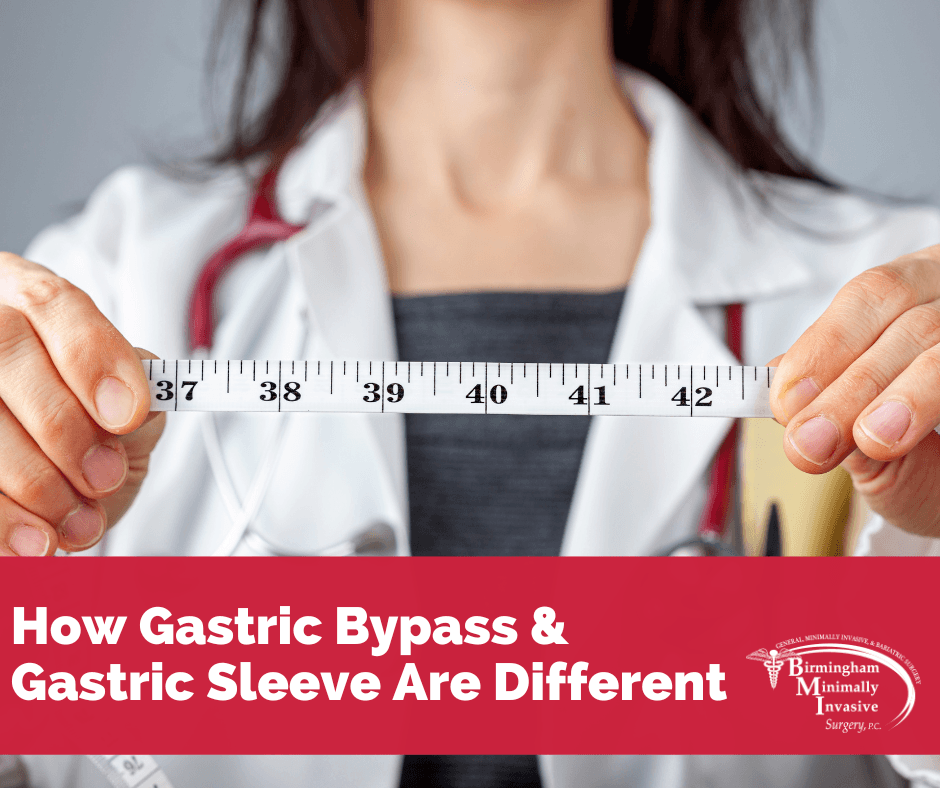
If you’re considering gastric sleeve surgery, you probably have numerous questions about the before, during, and after. Gastric sleeve is a type of bariatric surgery designed to help you lose weight and improve your quality of life. At BMI Surgery, we always recommend our patients research, evaluate, and ask questions before gastric sleeve so that they can make an informed decision they’re proud of.
As you begin your journey towards gastric sleeve surgery, our team answers your frequently asked questions. From recovery time to post-operative diet and alcohol consumption, our weight loss surgeons answer all your pressing inquiries. If you have any other questions or are ready to schedule a gastric sleeve consultation, contact our BMI Surgery today!
How long does gastric sleeve surgery take?
Gastric sleeve, also called sleeve gastrectomy, is typically a quick procedure. From start to finish, the entire process usually takes less than an hour. Once you’re under general anesthesia, the actual procedure takes about 30 to 45 minutes to complete.
Is gastric sleeve safe?
Gastric sleeve surgery is one of the safest elective surgery procedures. The operation is minimally invasive, which reduces the risk of severe bleeding and discomfort. Furthermore, the health ailments that accompany obesity, like sleep apnea, heart disease, and high blood pressure, are usually improved after surgery.
Most patients lose upwards of 50% of their excess body weight, making weight loss surgery well worth it for most patients. As with all surgeries, some risk is involved, and we recommend you speak with your weight loss surgeon about potential side effects.
How does gastric sleeve work?
Gastric sleeve is a minimally invasive procedure that uses a laparoscopic approach, which means the surgeon can use smaller incisions and more precision movements inside your abdomen. The weight loss surgeon will make five small incisions across your abdomen and using the laparoscope and other surgical instruments, will remove a portion of your stomach.
With these tools, your surgeon will remove approximately 80% of your stomach and close the remaining portion. As its name suggests, your stomach will resemble a sleeve, or banana-shape, to promote the ingestion of fewer calories and reduced hunger cues.
What should I eat after gastric sleeve?
Right after surgery, you’ll want to follow a liquid diet, only drinking clear liquids, like water and broth. After a few days, you can add other beverages to your diet, like unsweet tea, milk, and coffee. You can begin eating strained and pureed foods like cottage cheese, fruits, and lean ground meat a few weeks post-operation. It’s essential to make sure there are no solid pieces of food in your meals during this time since your stomach is still healing.
Then, after a follow-up visit and with the doctor’s approval, you can begin to eat soft and solid foods, chewing each bite thoroughly to make digestion easier. At BMI Surgery, we’re with you every step of the way. If you have questions about what you should or shouldn’t eat after gastric sleeve, don’t hesitate to contact our team of experts.
What is the average gastric sleeve recovery time?
After gastric sleeve surgery, you’ll most likely be able to go home the day of the procedure. The average gastric sleeve recovery time varies based on each body type, but most people easily return to their normal activities a few days after the operation.
Many patients can return to work as early as 3 days after gastric sleeve, but we don’t want you lifting more than 10 pounds for 4 weeks after surgery. It’s important not to push yourself too hard and be patient with yourself during the recovery process.
Do I need to exercise after gastric sleeve surgery?
The weight loss team at BMI encourages you to exercise as soon as possible after gastric sleeve, but we don’t want you lifting more than 10 pounds for 4 weeks after surgery. We recommend brief walks initially and then transitioning to cardiovascular exercises like stairs or cycling as soon as you feel like it.
After 4 weeks, you can add weight training into your routine, but be sure not to overdo it. While it is vital for your physical and mental well-being, exercising too vigorously too soon can cause complications, so make sure you follow your doctor’s recommendations thoroughly.
Can I drink alcohol after gastric sleeve?
Once you have completed your gastric sleeve procedure, we recommend avoiding alcohol for at least six months. Don’t worry, though…most patients can slowly reintroduce alcoholic beverages after the six-month mark. Drinking alcohol can deplete your body’s glycogen levels, which can lower your blood sugar and lead to blurred vision, numbness, and drowsiness. Also, alcohol is considered “empty” calories and will make weight loss more difficult.
Be mindful as you start drinking again, and check in with yourself after each drink to see how you’re feeling. Since your stomach is much smaller than before, you may find you become inebriated more quickly after weight loss surgery.
Feel Your Best for Years to Come with BMI Surgery
After gastric sleeve surgery, you can live a healthier and happier life! If you have any questions about gastric sleeve surgery or want to learn more about gastric sleeve at BMI Surgery, don’t hesitate to reach out. With years of experience, Dr. Long and his team are ready to help you improve your mental and physical well-being.
Your Experts in Weight Loss Surgery: BMI Surgery
Are you interested in learning more about gastric sleeve? At BMI Surgery, we can help you lose weight and lead a happier, healthier life. Call us at (205) 858-1211 or contact us online to learn more about weight loss surgery today!



